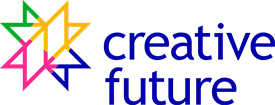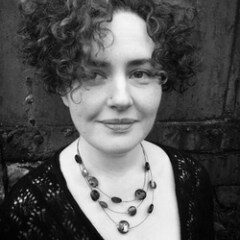
We’re pleased to announce that this year’s CFLA guest writer will be the award-winning spoken word artist and short story writer Michelle Green. Michelle has performed across the UK and beyond, both solo and in collaboration with other artists, and her short fiction has been translated into Croatian. She has written for Literature Across Frontiers and, most recently, BBC Radio 4’s Border Crossing – a series of paired stories from international and British authors exploring refugee experiences. She has published one collection of poetry with Crocus Books, and her critically acclaimed collection of short fiction, Jebel Marra (Comma Press), was longlisted for the Frank O’Connor International Short Story Award, Edge Hill Prize, and Polari First Book Prize. Michelle is the 2016 recipient of the Julia Darling Travel Fellowship.
We recently caught up with Michelle to talk about how she got into creative writing, the challenges she’s faced in her career so far, and why she thinks the Creative Future Literary Awards are so important:
I started writing in earnest when I went to drama school and discovered that there was a severe lack of interesting roles for women. I started with a one person show about mental health and pharmaceuticals, and then began making zines (mini magazines) with like-minded friends.
When I moved to Manchester I joined a weekly writing group that was run by Lemn Sissay, and that really cemented writing as a core part of what I wanted and needed in my life. Being part of a committed group was crucial. Lemn challenged us to take our writing (but not ourselves) seriously, and be brave enough to see what we were capable of. I’m still in touch with members of that group today, and I get such a boost seeing how they’ve established themselves as poets, children’s writers, MCs and stand up comedians. Some writers don’t seem to need community…but I know that I do.
The biggest challenges I’ve faced in becoming a professional writer are money, health and confidence. When I became disabled, I lost my main income and was also no longer able to do live shows. Chronic illness changed my writing too. It meant I couldn’t rely on adrenaline abuse to crack out the high energy slam pieces I’d become used to producing. That was gutting, initially, but when I realised that writing primarily for slams and live shows had actually become limiting for me creatively, I found my way through by focusing more on trying to write outside my comfort zone, with more depth and time spent.
Confidence, and lack of it, has been a challenge too. I spent a long time feeling inferior to writers who had the classical education and the confidence that often comes with that. Reading people like Dorothy Alison, Eli Clare and Maya Angelou really helped, as did the discovery that every writer I know who is good at what they do is insecure about it on some level, no matter how confident they appear. I stopped waiting for the insecurity to magically vanish, and now when it rears its head I guide it to the corner and out of my way.
Events like the Creative Future Literary Awards Showcase are important because they push against the notion that writers only exist in privileged isolation. By bringing together writers who are marginalised in various different ways, space is made for the complexities of our real lives and experiences, and the places from which we write. None of us are one thing, one experience. It also takes note of the fact that access to writer development, support, promotion and recognition is still extremely unequal in many ways. By focusing on high quality work from writers who’ve had larger challenges to face, it starts to redress that imbalance (and destroy the myth that excellent writing only comes from certain sources).
My biggest bit of advice for writers at the beginning of their career: join a writing group. Find one that focuses on what you want to learn, and make sure there are people in the group with more experience and confidence than you. This is how you learn and improve, how you stretch outside your comfort zone. Groups exist online as well as in person. You learn as much or more from reading and discussing other people’s work as you do from your own. It will teach you how to step back, assess, look at the bigger shapes in your work. It will also help you see that technique can be learned, and that all the formal training in the world is no substitute for creative ambition and really giving it some welly. Think big. Don’t let that internal voice of insecurity stand in your way, and don’t feel bad when it sometimes does. The more you practice sending it to the corner while you get on with other things, the easier this will get. Promise.
Oh, and don’t be scared of finding your creative limits. Like all limits, they can and do change. I spent years holding back in my writing because I didn’t want to know where the limits of my capability were. By bumping up against them, I was able to grow.
I work across a number of genres and media, from spoken word to short stories to digital artworks, but the form usually emerges quite near the beginning – it’s something to do with the core sound, feel and movement of the idea. When I start with a new idea, I do a lot of freewriting with no expectation on what has to emerge. I look for the stand-out line or phrase or image in the initial writing, and from there a form usually presents itself. Place is really important for me. Once I figure out where the piece is set, I build from there.
Having said that, it did take me almost three years to realise that the frustrating series of spoken word poems I was struggling with needed to be a collection of short stories. I got there with the help of a very good (and patient) editor. This links back to the previous question – another reason to be part of a writing group is that quite often other people can see the solutions more clearly than you can! I see different forms and media as unique tools, and so I want to keep learning, adding to my toolbox.
I love getting recommendations from other writers and readers, whether that’s digital, physical, or audio. I can’t go out to live events as much as I used to, so I’ve started listening online, using things like the Evidently Salford youtube channel and MacGuffin literary jukebox. I also ask writers I like who they read and/or listen to. My top tip right now would be the poet and essayist Eli Clare – stunning and precise writing about disability, gender, race, queerness, and the wild expanse of nature. This is no navel-gazing autobiographic work. He writes with such generosity, opening every window and door.
To find our more about writer Michelle Green, see her website here



